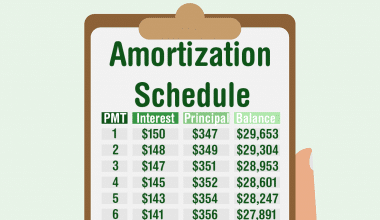When you hear the word “business,” what comes to mind? Many believe business is a commercial activity involving exchanging goods or services for profits. There is much more about the business than you ever knew, which you will discover as you read through this article.
What is Business?
A business is an organization or other body that conducts commercial, professional, non-profit, or industrial activity. It may be for-profit or not-for-profit and may or may not have a separate existence from the individuals/people who control it.
A business (activity) is a commercial activity in which goods or services are given the primary motive to generate an income.
What is a Business Simple Definition?
A business is a company or organization that engages in commercial, industrial, or professional activity. Businesses can be either for-profit or non-profit organizations. Limited liability firms, sole proprietorships, corporations, and partnerships are all examples of business structures.
Business concept
The concept of business is the basic idea of business. The business model, plan, vision, and mission are developed based on this concept. For example, Uber started with the concept of integrating taxi drivers and offering their services under one brand as needed. Every other business strategy is developed based on this concept.
Business purpose
The goal of the business is to keep the business doing business for the long term. This is why the business exists. While most people argue that having a profit is the main goal of any business. Few developed a new underlying goal.
According to the traditional concept, business consists only in earning income by providing goods and services to customers.
According to the modern concept, the underlying goal of any business is customer satisfaction because it will lead to maximum profits. When the customer is satisfied, the business is good.
What are the Best Words in Business?
The list is endless. Let’s start coming up with some potential business buzzwords: Invention, Strategy, Core Purpose, Competitive Advantage, Quality, Values, Market Share, Solution. Furthermore, Excellence, Culture, Execution, Cash Flow, Collaboration, Alignment, Vision, Leadership, Momentum, Growth, Profits, People, Customers, Innovation, Differentiation, etc.
Types of Business
Businesses can be classified into 4 types, but not limited to them. These are the –
Manufacturing companies are the manufacturers who develop the product and sell it either directly to the customer or to middlemen to make sales. Examples of manufacturing companies are steel mills, plastic mills, etc.
#1. Service
This type of business deals with selling intangible goods to consumers. In contrast to material goods, services cannot be hidden or isolated from the provider.
Service companies provide professional services, expertise, commission-based promotions, etc. Examples are salons, schools, counseling, etc.
#2. Merchandising
Merchandising is a middleman business strategy where the company buys products from a manufacturer, wholesaler, or other partner and sells them at a retail price. This is commonly referred to as “buying and selling” because they profit by selling products at a price higher than the cost.
Examples of merchandising businesses are grocery stores, supermarkets, retailers, etc.
#3. Hybrid
Hybrid businesses have the characteristics of two or more companies discussed above. For example, a restaurant makes its own dishes (manufacture), sells products such as cold drinks made by other companies (goods), and provides service to customers
Types of Business Ownership
Corporate ownership comes in many forms based on the number of owners, owner responsibility, representation, and motive. These are the –
#1. Sole proprietorship
A sole proprietorship is a company owned and operated by a single person. Easy to set up, use, and register. All business income is the owner’s property, and he is responsible for all liabilities incurred.
The main disadvantage of this business is that the owner has unlimited liability. Lenders can track the owner’s personal assets if the company does not pay for them.
#2. Partnership
When two or more people join the force to run a business, they usually form a partnership. Partnerships come in two forms – general and limited. A partnership is like ownership, but there is more than one owner, and all owners have unlimited liability. In a limited partnership, some or all of the partners have limited liability.
#3. Group
A company has a separate legal identity from the people who own or operate it. Ownership is usually represented in the form of shares.
Owners have limited responsibilities but are not necessarily involved in running the business. The company is managed by a team (Board of Directors) elected by the shareholders.
#4. Limited liability company
A limited liability company is a hybrid type of business with both corporate and partnership characteristics. It is a partnership because it has not been registered and a company because all partners/owners have limited liability.
#5. Cooperative
The cooperative is a private business organization owned and controlled by people for mutual benefit. These people are called members and benefit from the goods and services offered by the cooperative. All members are expected to contribute to the management of the company as the main motive of the cooperative is to provide a service to all members rather than a return on investment.
What is the Most Important Rule in Business?
You must stand behind your product 100%. Prioritize your customers’ needs above all else. If buyers are putting their faith in your product, you had better make good on that faith. Customers will rave about your product’s quality if they feel like they got their money’s worth from it.
What is the Best Business Advice?
- Listen to your customers’ needs.
- Focus on a particular niche market.
- Talk to those who have done it.
- Ask how you can help.
- Think Long Term.
- Ditch Perfectionism.
- Picture Your Business Like A Workhorse.
- Hustle And Network In Order To Succeed. You won’t succeed unless you hustle.
Characteristics of a Business
The following are the important characteristics of a business:
#1. Economic activity
Business is an economic activity of producing and selling goods and services. It offers job opportunities in various sectors, such as banking, insurance, transportation, industry, commerce, etc. A business is an economic activity involving setting up public service companies to meet people’s needs.
It provides a source of income for society. Business opportunities lead to job creation and, as a result, economic growth. Makes the industrial and economic development of the country.
#2. Buy and Sell
The basic activity of a company is commerce. The business includes buying raw materials, tools, machinery, office supplies, real estate, etc. On the other hand, finished products are sold to consumers, wholesalers, retailers, etc. The business makes various goods and services available to the company’s various departments.
#3. Continuous process
Business is not a one-time activity. It is a continuous process of production and sale of goods and services. A single trade cannot be called an agreement. A business must be run periodically to grow and generate regular returns.
Companies must continually engage in research and development to gain a competitive advantage. A continuous improvement strategy helps increase the profitability of the company.
#4. Risks and uncertainties
Risk is defined as the impact of uncertainty on business objectives. Risk is associated with each business. The business is exposed to two types of risk: insurable and uninsurable. An insurable risk is predictable.
#5. Creative and dynamic
Modern business is creative and dynamic. To make and sell goods and services, a business needs to develop new ideas, ways of doing things, and concepts. This means taking things in a fresh, new, and inventive way.
You have to be creative because the company works in a social, economic, and technological environment that is always changing. Companies must also develop new products to meet the growing needs of consumers.
#6. Customer satisfaction
The phase of business has changed from traditional concepts to modern concepts. Today, the company has a consumer-centric approach. Customer satisfaction is the highest priority in all economic activities.
What Makes a Business Successful?
8 interesting things every successful business has in common:
Exclusive value
Tenacity.
Customer-focused strategy.
Good advertising.
Solid vision.
Leaders who are driven.
Empowered workers
Lastly, a readiness to take risks. Risk-takers in business are more likely to succeed than those who play it safe.
Business Ideas
Choosing the path of entrepreneurship can be very challenging. Building a business from the ground and getting it up and running is serious work. However, there are ways to ease the stress. First is getting a business mentorship; every successful entrepreneur you see today has who they look up to.
Before running any business successfully, you must get a business plan; this will help you discover any weaknesses in your business idea so you can address them.
Business Yield Idea Generator
What makes this the best anyone can find online is that this generator is purely done by humans, not by algorithms or Artificial intelligence.
Humans gather data and do quick but detailed research based on the information you provide. It’s simple: answer a few simple questions, and your business ideas will be delivered to your inbox in less than 24 hours.
24hrs because this is the most feasible idea generator as it considers your budget, intended startup locations, talents and skills, the available time you can give the business, etc.
Based on these data with an extensive feasibility study and just a little token, you would have a list of ideas sent to your email with links to give you access to instant business plans, a business model canvas, and up to 3 years of financial analysis to help you get started for the business.
FAQs
What main business means?
Principal business(es) refers to the principal business(es) of the Company as declared in its financial statements.
Why is business so important?
Numerous elements of a nation’s economy, such as productivity, employment, and a measure of financial security, are facilitated by businesses.
What is the scope of business?
It encompasses all human actions that serve to meet the needs and desires of a society’s inhabitants. A significant portion of the firm is devoted to delivering the final or completed items or goods to the intended customers.
Related Articles
- Business partnership agreement: How to structure a business partnership agreement
- Partnership Agreement: Best Tips on How to write a partnership agreement
- General Partnership Definition: Taxes, Liability & Agreement






